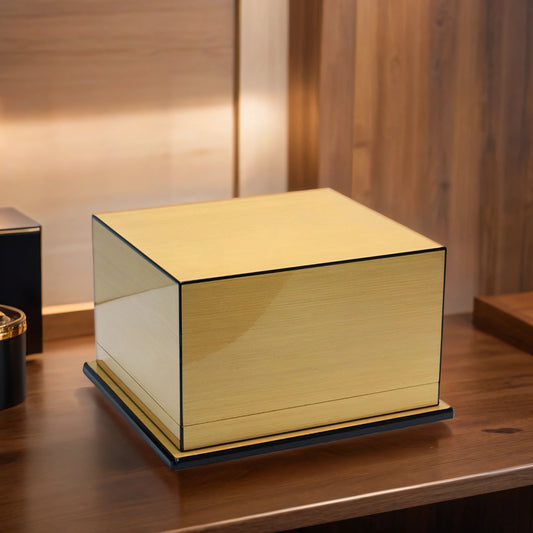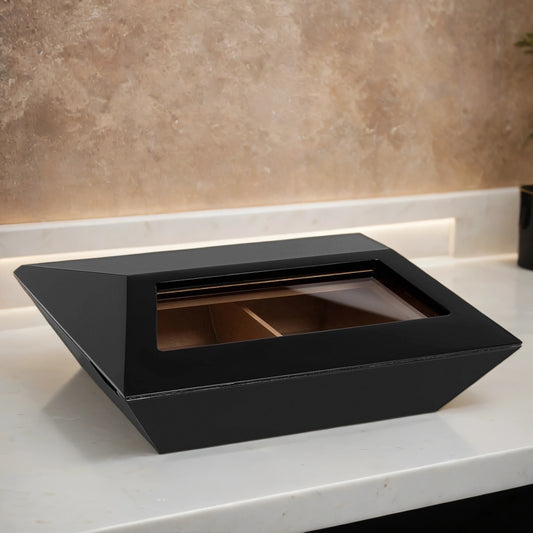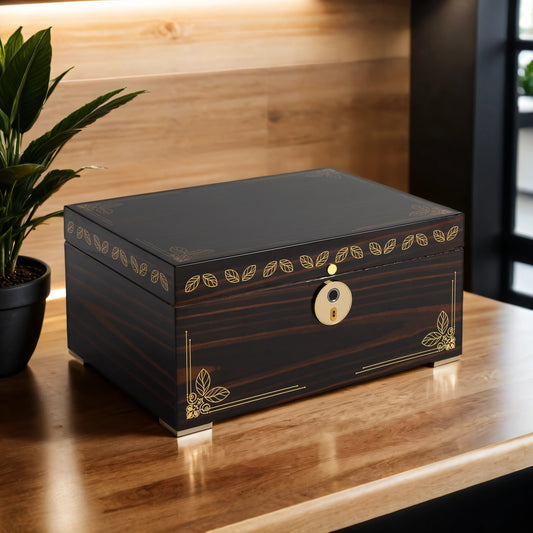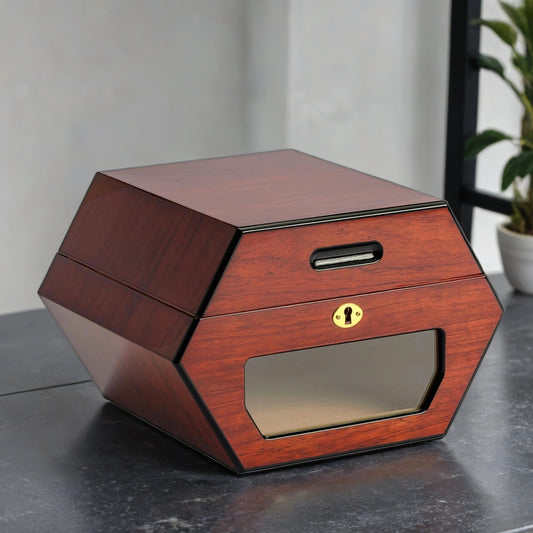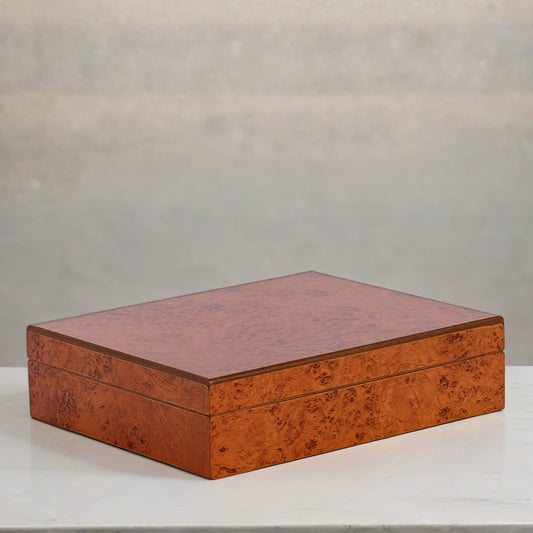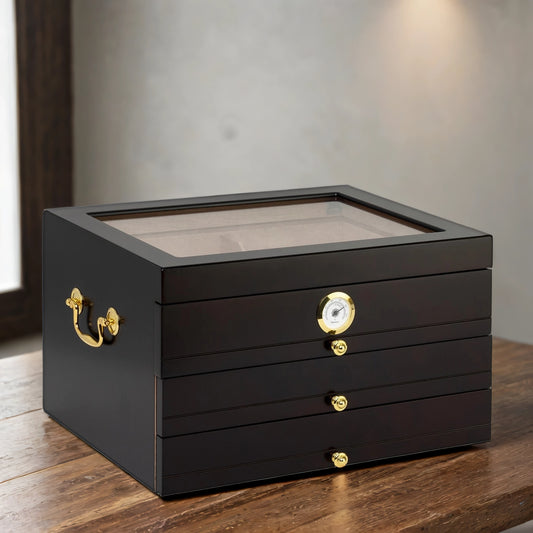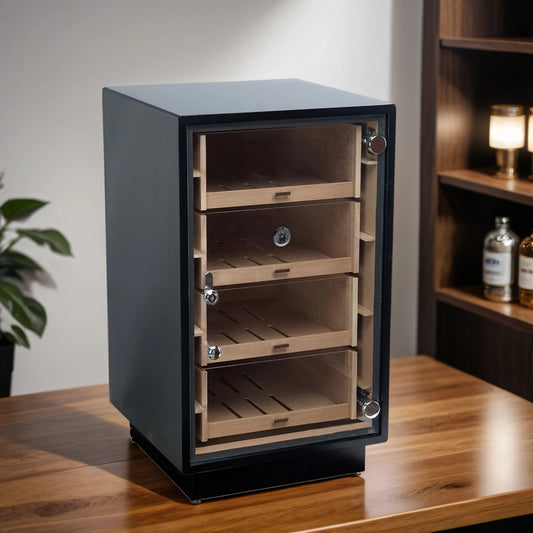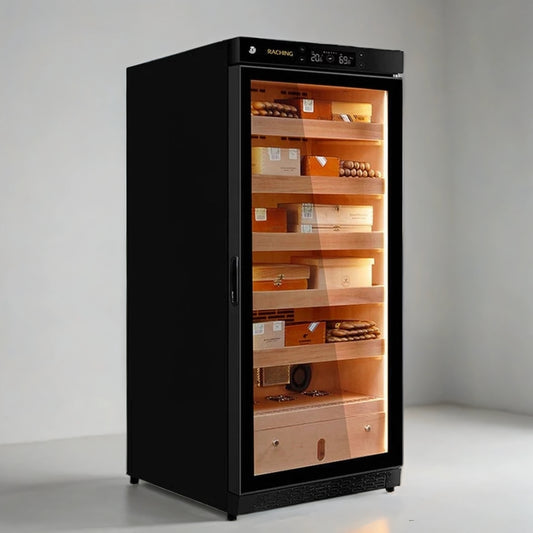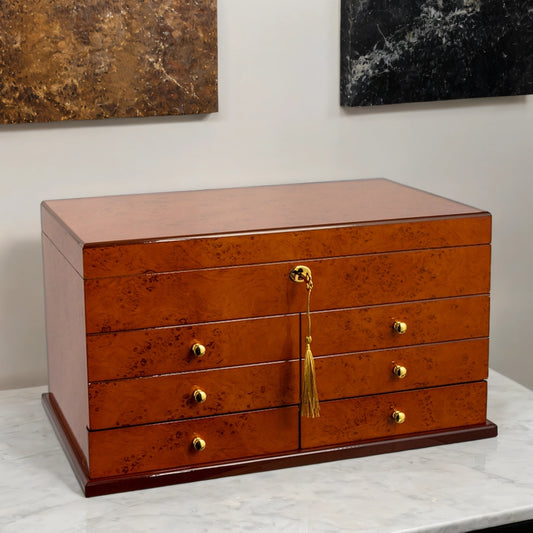
Your Guide to Aging Cigars
Aging cigars is like an art form wrapped in patience. Just as a fine wine or bourbon gets better with age, so too can cigars if done right. But this process isn’t about tossing your cigars in the back of a drawer and hoping for the best. Properly aging cigars takes some know-how and, yes, a bit of TLC. In this guide, we’ll take you through everything you need to know to get started, from why cigars age at all to how to create the ideal environment in your humidor.
Why Age Cigars?
Aging cigars isn’t just for the obsessed; it’s a way to enhance the smoking experience. Cigars are packed with complex flavors that can sometimes be too strong when they’re fresh off the factory floor. By allowing them to age, those flavors can develop and mellow, creating a smoother, more nuanced smoke. Think of it as giving your cigar time to “find itself.”
As a cigar ages, it undergoes a natural fermentation process. This changes the chemical makeup of the tobacco, breaking down certain compounds that contribute to bitterness or harshness. In short, aging cigars allows the flavors to harmonize and balance out, creating a richer, more satisfying smoke. But keep in mind, not all cigars age equally. Stronger, full-bodied cigars often benefit from aging more than mild ones.
If you’re exploring cigars that age well, it may be worth pairing them with a storage setup that can preserve those flavors long term. Our guide to the best humidors showcases the top rated cigar humidors built for consistent, reliable aging.

What Happens During the Aging Process?
Behind the scenes of aging cigars is a world of chemical transformations. The tobacco releases tannins and ammonia as it ages, reducing sharpness and bitterness. In their place, you get those sought-after smooth, creamy notes cigar enthusiasts rave about. Oils within the tobacco leaves also redistribute over time, adding a sheen to the cigar’s wrapper. If you’ve ever seen an aged cigar with a subtle, oily gloss, that’s a sign of well-preserved oils—and good aging.
Beyond the taste, aging can affect the burn and aroma. Cigars that have been properly aged tend to burn more evenly and produce a more pleasant aroma. For those who enjoy the occasional cigar indoors (if you’ve somehow managed to negotiate that arrangement), this aroma upgrade might just be the peace offering needed.
How Long to Age Cigars?
One of the most common questions is, "How long should I age my cigars?" Unfortunately, there’s no universal answer—it all depends on the cigar. But here are a few general guidelines to keep you on track:
- 1 Year: Good for a noticeable change. The cigar becomes smoother and starts to lose its initial sharpness.
- 3 Years: Often a sweet spot, with many cigars reaching their peak flavors here.
- 5+ Years: Only for certain cigars, especially robust or full-bodied varieties. Beyond this point, some cigars can begin to lose their complexity.
The aging process can reach a point of diminishing returns, so it’s essential to experiment. Try aging different cigars to find the optimal duration for each type. Just be sure to keep track—there’s nothing worse than digging through your stash only to realize you’ve forgotten which cigar is which.
How to Age Cigars Properly
Aging cigars properly requires attention to detail and a suitable environment. Here’s what you need to know to create the ideal setup.
- Choose the Right Humidor: A quality humidor is essential. Look for one that seals well and is made of quality materials, like Spanish cedar, which helps regulate humidity and adds a subtle flavor over time. Advanced models like electronic humidors can greatly aid in keeping the aging process automated and running smoothly.
- Humidity Levels: For aging, aim to keep the ideal humidity at 65-70%. Too high, and you risk mold and sogginess; too low, and your cigars dry out. Consistency is key here—fluctuating humidity can compromise the aging process.
- Temperature: The sweet spot for cigar temperature levels is around 65-70°F. Avoid storing cigars in places prone to temperature swings, like the attic or the basement. Heat can make cigars age too fast, while cold temperatures may stall the process.
- Storage Tips: Don’t overcrowd your humidor. Leave enough space between cigars so air can circulate, allowing each one to age evenly. Consider placing cigars with the foot end facing outward to make handling easier and reduce the chances of wrapper damage.
A well-aged cigar is worth the effort, so take your time to set up the humidor correctly. Rushing this process could leave you with a flavor profile that’s more "barnyard" than "boulevard."

Aging Cigars in a Humidor
For cigar lovers serious about aging, a humidor is essential. A good humidor maintains the right balance of temperature and humidity, allowing your cigars to age gracefully over time.
- Seasoning and Maintenance: Start by seasoning your humidor to prevent the wood from drawing moisture out of the cigars. Regular maintenance is crucial. Check humidity and temperature levels at least once a month, and adjust as needed.
- Long-Term Storage: If you’re in it for the long haul, make sure your humidor is reliable. You don’t want to lose a batch of cigars because of a flimsy seal or faulty hygrometer. For those looking to age cigars for 5+ years, a high-quality humidor is worth the investment.
Can All Cigars Be Aged?
Here’s the kicker—not every cigar ages well. Just like some wines are meant to be enjoyed young, some cigars reach their peak sooner rather than later. Generally, full-bodied cigars with rich, complex flavors respond best to aging, while mild cigars might not benefit as much. If you’re unsure, consult with your tobacconist or do a little trial and error.
Stronger cigars with dark wrappers, like maduros, often have the depth to develop nicely over time. But for lighter, milder cigars, aging may result in flavors that are too subdued. You don’t want to end up with a cigar that tastes like lightly charred air.
Signs of a Well-Aged Cigar
How can you tell if your cigar is aging well? Look for these indicators:
- Visual: Aged cigars often have a smooth, even color with a slightly oily sheen. They should look fresh but not damp.
- Aroma and Flavor: When you smell the wrapper or foot of the cigar, you should notice a complex aroma. And when you finally light up, the smoke should be balanced, with no harshness or bitterness.
Once you’ve experienced a well-aged cigar, you’ll know it—the flavors blend harmoniously, creating a smoke that’s as smooth as silk.
Tips for Aging Cigars at Home
For those just starting out, here are some practical tips to make sure your cigars age as they should:
- Humidity Control Devices: Consider using Boveda packs or similar humidity-control devices. These make it easy to maintain consistent humidity without constant monitoring.
- Avoid Common Mistakes: Don’t store cigars in the refrigerator (unless you’re looking for a dry, cracked wrapper). And whatever you do, don’t keep them in plastic bags indefinitely—cigars need to breathe a bit.
- Check Regularly: Every few months, inspect your cigars for any signs of mold or excessive dryness. Rotate them if they’re in a large humidor to ensure even aging.
Conclusion
Aging cigars isn’t a sprint—it’s a marathon. If you’re willing to put in the time and effort, you can transform a good cigar into a truly great one. Just remember to store your cigars in a quality humidor, maintain stable humidity and temperature, and choose cigars with the potential to age well. Whether you’re aging a few cigars for a year or keeping a selection for several years, the end result can be an elevated smoking experience that’s worth every second.

